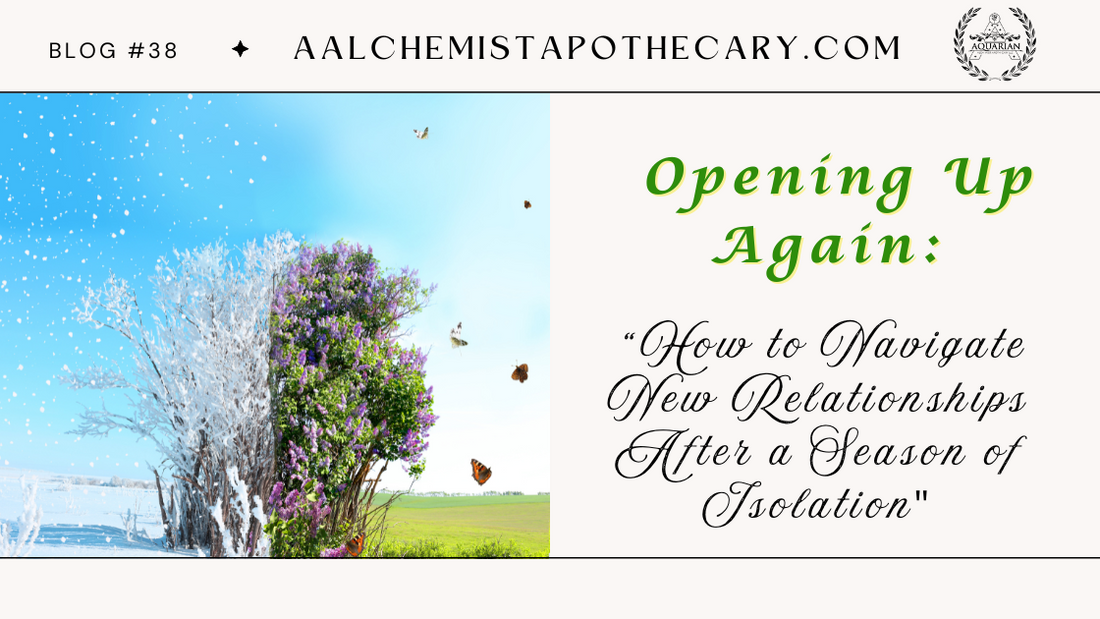Life is made up of similar cycles and seasons that most people experience in their lifetimes. Just like the earth turns through autumn, winter, spring and summer, our lives unfold in seasons physically, emotionally, spiritually and creatively. Consider the following breakdown of the seasonal correlations to life’s cycles...
Spring is the season of beginnings: new relationships, fresh ideas, personal growth. It’s when things bloom after a long internal winter.
Summer is the time of expansion and energy: life feels full, relationships thrive, confidence is high, and momentum builds.
Autumn is a time for harvesting and letting go, we gather the lessons of what we’ve planted and start releasing what no longer serves us.
Winter is the space of rest, reflection, and stillness: a necessary quiet for healing, solitude, and preparation for what’s next.
We often resist the colder seasons of our lives, the ones filled with endings, grief, or stillness but those moments are just as sacred. They prepare us. They deepen us. And they always give way to renewal.
In nature, the seasons follow a fairly predictable cycle every winter gives way to spring in a matter of months. But in life, especially emotionally, the timing isn’t so precise. Sometimes we find ourselves stuck in an inner winter for years, a time marked by isolation, grief, self-protection, or numbness.
Imagine if nature’s winter lasted longer frozen ground, bare trees, bitter winds year after year. That’s what it can feel like internally when we’ve withdrawn from connection or lost our sense of belonging. So how do we thaw out and defrost after long periods of hibernation, when it’s time to rejoin the world and engage our communities.
Emerging from isolation or a period of hurt often leaves us protective of our hearts. Yet, real connection requires risk the willingness to open up, knowing we can’t control every outcome. Here’s how you might begin to let someone new in:
Start with validation. You’ve spent time alone maybe healing, maybe surviving, maybe just existing and now you’re feeling the urge to connect again. That’s brave. And it’s worth exploring with care. The first attempts at rejoining the world might feel clumsy. That’s okay. Vulnerability might sting. But awkwardness is just a sign you’re trying. You don’t need to fling open the doors of your heart all at once. Take your time, start small and follow this guide to give you direction and confidence. Okay, you have analyzed and realized that you have been a hermit long enough and you are ready to connect, that brings us to our next topic how to tell if someone is good for you not, Not the old you but the new you that you have grown into during this alone time.
So how do you know if someone is truly good for you? And once you sense the possibility of a meaningful bond, how can you allow yourself to let your guard down, especially if your heart still carries the scars of old wounds? Follow these ten things to look for to tell if someone is good for you or not.
Recognizing Who Is Good for You
• Observe Their Actions, Not Just Their Words
• People may say all the right things, but it's their actions that reveal their genuine character. Are they consistent, kind, and respectful in both big and small moments? Do their behaviors align with their promises?
• Notice How You Feel Around Them
• Pay attention to your body and emotions. Do you feel at ease, or do you sense you’re shrinking, second-guessing, or walking on eggshells? Good connections allow you to feel safe, seen, and accepted, not anxious or diminished.
• Look for Reciprocity
• Healthy relationships are built on mutual effort. Does the other person show genuine interest in your life and well-being? Are they willing to listen as much as they share? Mutual curiosity and care are strong indicators of someone who’s good for you.
• Respect for Boundaries
• Whether romantic or platonic, a trustworthy person honors your boundaries—physical, emotional, and temporal. If someone pushes too hard or disregards your limits, consider it a warning sign.
• Shared Values and Interests
• While differences can enrich a relationship, shared values and interests create a foundation for meaningful connection. These form the common ground on which trust, and intimacy can flourish.
Now that you have gone through this list and discovered if this new person is possibly a good fit for your life, they respect who you are, your boundaries and the fact that you need to take things a little slow .It is now time for you to open and let your guard down so a relationship can develop. Developing a new relationship is not easy when you are suspicious or constantly feeling the need to guard yourself. Let’s look at some of the steps we can take to let our guard down so that we can let someone into our lives.
Letting Down Your Guard After Hurt or Isolation
Emerging from isolation or a period of hurt often leaves us protective of our hearts. Yet, real connection requires risk the willingness to open-up, knowing we can’t control every outcome. Here’s how you might begin to let someone new in:
• Go Slow and Honor Your Pace
• There is no deadline for opening-up. Take small steps, revealing parts of yourself gradually. Notice how the other person responds and adjust your pace accordingly.
• Communicate Your Fears and Needs
• It’s okay to talk about your experiences with isolation and hurt. Vulnerability invites authentic connection. The right person will listen with empathy and respond with kindness.
• Challenge Negative Assumptions
• After being hurt, it’s common to expect disappointment. Gently challenge these assumptions as you get to know someone new. Remember that each person is unique and deserves a fair chance.
• Seek Support Outside the Relationship
• Talk to trusted friends, a therapist, or a support group about your journey. Processing your emotions with others helps foster self-awareness and resilience.
• Celebrate Progress, Not Perfection
• Every small step toward vulnerability is worth honoring, whether that’s accepting an invitation, sharing a story, or expressing a need. Growth happens gradually, and setbacks are part of the process.
Final Reflections
Building new relationships after a long period of being single or isolated is both brave and hopeful. Remember: you are not required to rush. Take your time to observe, connect, and heal. Give yourself and others the grace of patience.
You are worthy of connection, care, and love, no matter what your past. Let the journey unfold one step at a time, trusting that the right people will honor your guard, and, when the moment is right, help you feel safe enough to gently lower it and let in someone in.

